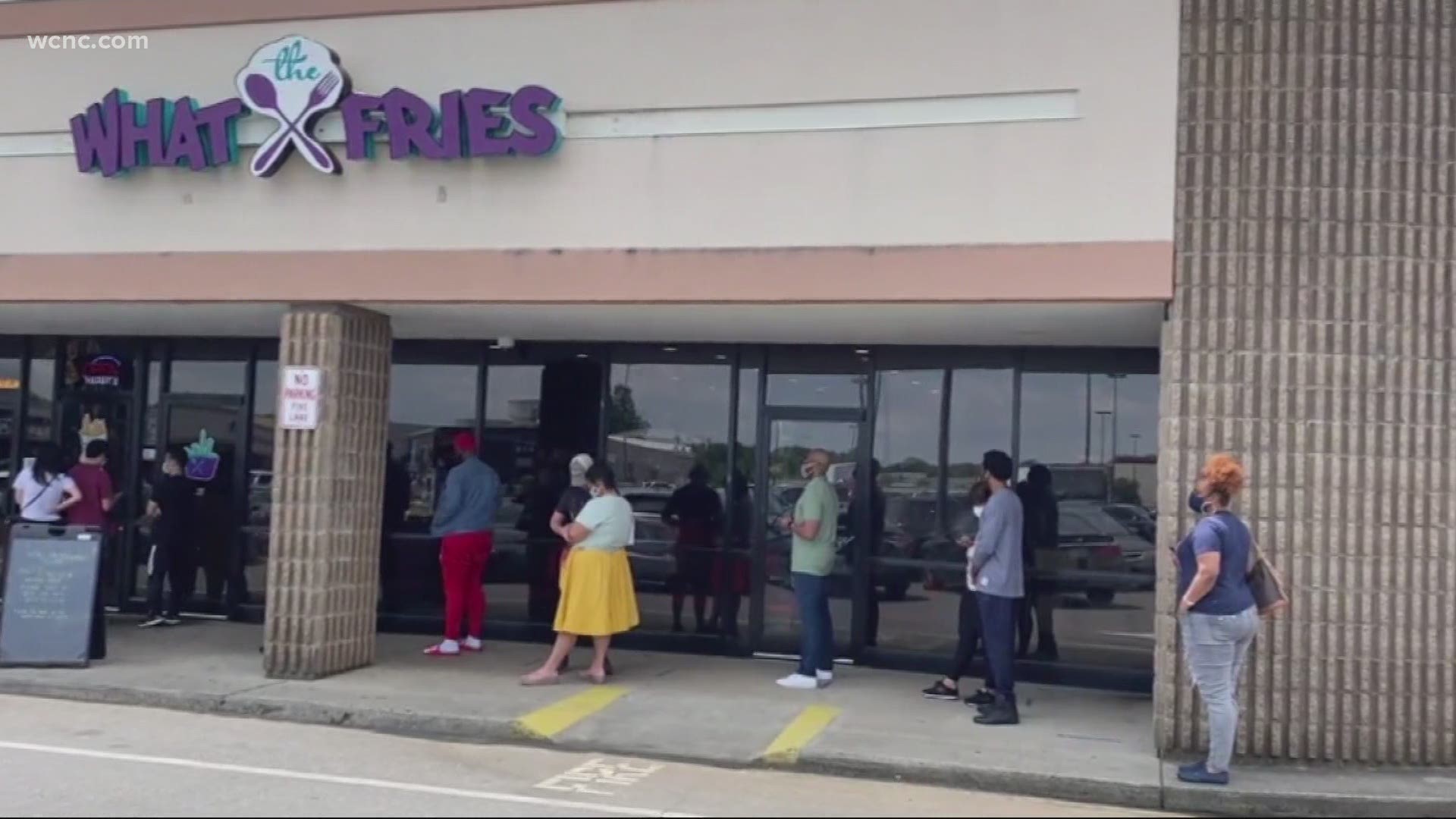CHARLOTTE, N.C. — One of Charlotte’s most talked-about food concepts has lines around the block, but the owners are struggling to get the funding they need in order to grow their business by opening a brick-and-mortar location.
When the two friends and co-owners opened What The Fries two months ago, it couldn’t be packed to the brim with patrons due to COVID-19. Now that COVID-19 restrictions have been lifted, more people can be in the restaurant, but there are still lines all day long.
Customers said it’s because the fries are good enough to wait in line for.
Co-owner and chef Jamie Barnes said the lines can feel overwhelming but “it’s a good thing.”
“It does feel good to see people are enjoying our food,” co-owner and chef Greg Williams said.
Barnes and Williams met at Johnson & Wales University and launched the What The Fries food truck five years ago. The food truck doesn’t make fries the side dish. They’re the main course, sometimes with toppings like lobster-mac-and-cheese or steak and shrimp.
“Since we have chef backgrounds, I think that’s why we’ve been able to put such a spin on it and make everybody see that you can do a lot with French fries,” Williams explained.
RELATED: Largest lenders deny home loans for Black applicants up to three times more often than whites
Their food truck dishes became so popular that, in December 2020, despite the ongoing COVID-19 pandemic, they decided to expand beyond their food truck and open a physical restaurant.
But when it came to trying to get financial help to make it happen, they ran into roadblocks.
“The banks we’ve been with for years and years couldn’t help us,” Williams said. “It’s been a struggle. We were able to get a little funding, but we’re still searching for more funding right now.”
WCNC Charlotte is always asking "where's the money?" If you need help, reach out to the Defenders team by emailing money@wcnc.com.
“We didn’t fare too good; [it’s] been a struggle,” Barnes reiterated.
“It’s definitely frustrating to know that we have such a great concept, and everybody was receiving us so well, and to have such trouble, it was [definitely] frustrating,” Williams added.
They aren’t alone. A U.S. Department of Commerce study found that among businesses with gross receipts under $500,000, loan-denial rates for minority businesses were about three times higher compared to non-minority-owned businesses.
The cost of doing business has gone up, according to the co-owners.
“A lot more expenses,” Barnes admitted. “Food costs have gone up as well.”
They’re still hoping to get additional financial help, but in the meantime, they’re making it work, cooking up funky fries and making new fans every day.
“To be in the spot we're in now, such a relief, a breath of fresh air,” Williams shared. “People responding so well to us, it’s a good feeling.”
Contact Michelle at mboudin@wcnc.com and follow her on Facebook, Twitter and Instagram.

